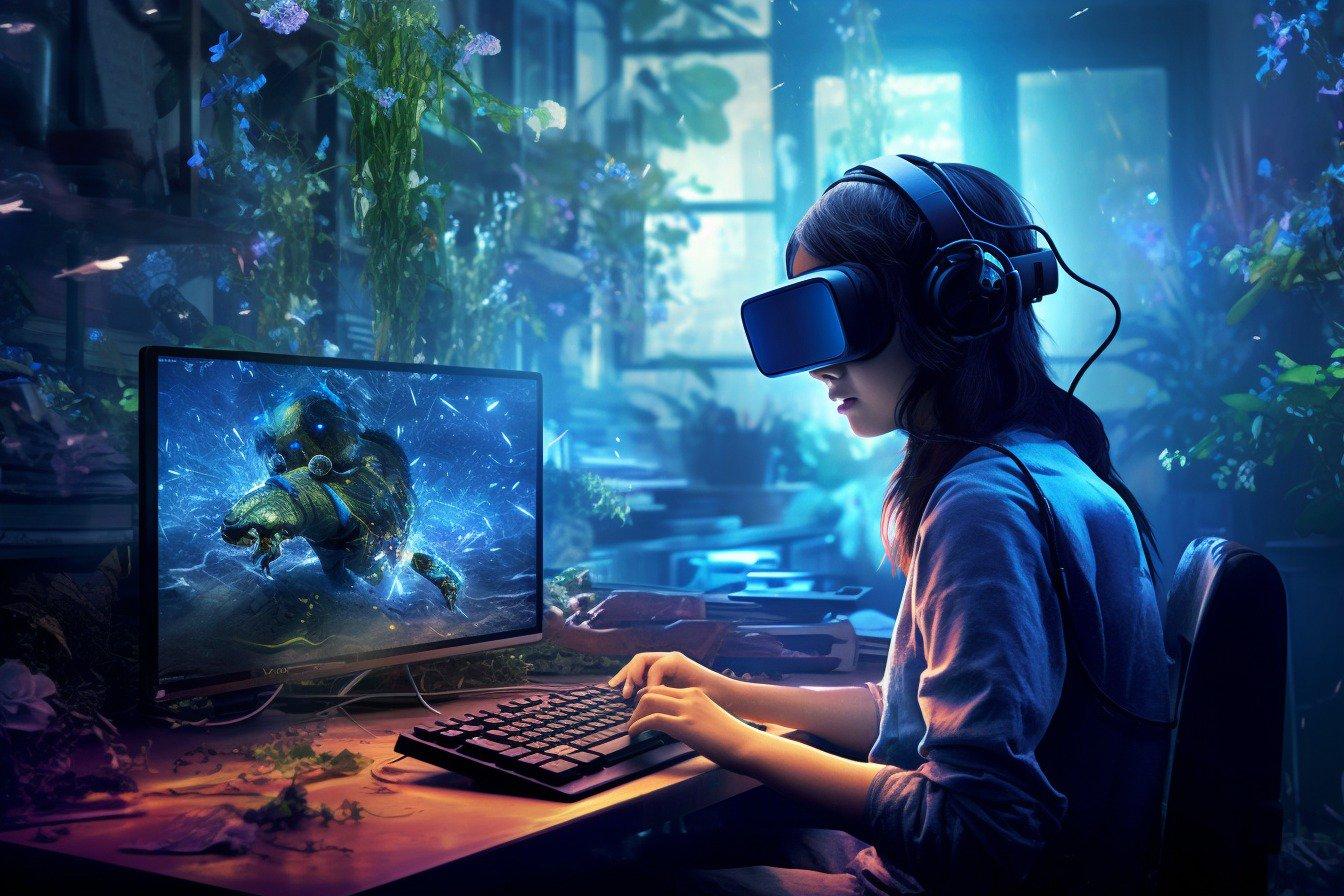In recent years, artificial intelligence (umela intelligence) has become a game-changer for many industries, but nowhere is this more evident than in the gaming world. AI has not only improved the quality of games but has also made them more engaging and lifelike for players. The purpose of this blog post is to explore the fascinating role AI plays in gaming, how it’s enhancing player experiences, and what the future might hold for this dynamic intersection of tech and fun.
Enhancing Game Graphics with AI
One of the most noticeable impacts of AI in gaming is the enhancement of graphics. AI algorithms can generate and refine textures, making virtual worlds more detailed and realistic. This improvement means players can immerse themselves in environments that look and feel like real life. Game developers use AI to automatically upscale graphics, allowing older games to be remastered, which attracts new audiences and rejuvenates classics.
Additionally, these enhancements are not limited to graphics alone. AI helps in creating responsive lighting and shadows that change accurately with in-game events. Imagine playing a first-person shooter game where the shadows change based on the angle of the sun, or a horror game where the environment shifts to make the experience more spine-chilling. These nuances make the gaming experience truly special for players seeking realism.
With AI’s help, games are now able to achieve greater visual fidelity. This transformation makes the gaming experience more enjoyable and captivating, keeping players engaged for longer periods. By creating visually stunning worlds, AI is not only enhancing current games but also setting a new standard for future releases.
Intelligent NPC Behavior
Non-playable characters (NPCs) are a crucial part of many games, providing challenges, storytelling, and interaction for players. Thanks to AI, NPCs are no longer just routine obstacles or plot devices; they have evolved into intelligent entities capable of learning and adapting. AI-powered NPCs can respond dynamically to a player’s actions, creating a more immersive and engaging experience.
For instance, in stealth games, AI-driven NPCs can remember a player’s previous actions and adapt their strategies accordingly. If a player frequently uses a particular hiding spot, the NPCs might start checking that area more often. This level of intelligence leads to exciting and unpredictable gameplay, keeping players on their toes.
Furthermore, AI enhances NPC social interactions. In role-playing games (RPGs), NPCs can have complex dialogues and relationships with players, making them feel like real people rather than scripted entities. This ability to simulate realistic interactions adds a rich layer of depth to gaming narratives, encouraging players to explore emotional and moral choices.
Procedural Content Generation
AI plays a significant role in procedural content generation, a method used by developers to create vast and unique game worlds. By using AI-driven algorithms, developers can generate landscapes, levels, and even entire galaxies that are different for every player. This variety ensures that each playthrough is fresh and exciting.
Procedural generation powered by AI can also create unique quests and challenges. Instead of following a linear storyline, players can encounter different scenarios, making the gaming experience highly personalized. This aspect adds tremendous replay value, encouraging players to return to the game time and again.
Additionally, AI-driven procedural content generation reduces development time and resources. Developers can rely on AI to create expansive worlds instead of manually crafting each element. This efficiency allows game studios to focus on enhancing gameplay, storylines, and other elements that enrich the player’s experience.
Personalizing Player Experiences
AI’s ability to analyze player data has enabled game developers to create personalized gaming experiences. By studying a player’s actions, preferences, and skill levels, AI algorithms can tailor games to suit individual players’ needs and enhance their enjoyment.
For example, AI can adjust the difficulty level in real-time, providing a customized challenge that keeps players engaged without causing frustration. In puzzle games, AI might offer hints if a player is stuck, ensuring they can progress and maintain interest. This level of personalization makes games accessible to a broader audience, irrespective of skill level.
Furthermore, AI can suggest in-game content that aligns with a player’s interests. If a player enjoys exploration, the game might highlight hidden areas or side quests. This approach encourages players to explore different aspects of the game, leading to a more enriching experience. By personalizing game elements, AI fosters a deeper connection between players and the virtual worlds they inhabit.
Future of AI in Gaming
The future of AI in gaming promises even more exciting developments. As technology progresses, AI will continue to blur the lines between reality and virtual worlds. We might see fully immersive virtual reality (VR) experiences with AI-driven narratives that adapt to players’ emotions and reactions.
AI could revolutionize multiplayer games by creating AI-controlled teammates or opponents that work seamlessly with human players. Imagine playing a co-op game where an AI-driven partner learns your strategies and complements your gameplay, making for an unbeatable team.
Additionally, AI might play a role in fostering inclusive gaming communities. By analyzing player behavior, AI could identify and discourage toxic behavior, creating a safer and more welcoming environment for all players.
Conclusion
AI’s role in gaming is nothing short of revolutionary. From enhancing graphics and NPC behavior to personalizing player experiences and generating content, AI has redefined interactive entertainment. For gamers, this means more immersive and engaging experiences, while developers can create richer worlds with greater efficiency. As AI continues to evolve, the possibilities for the gaming industry are limitless. For those interested in exploring this exciting realm further, many resources are available to learn about AI and its applications in gaming.




